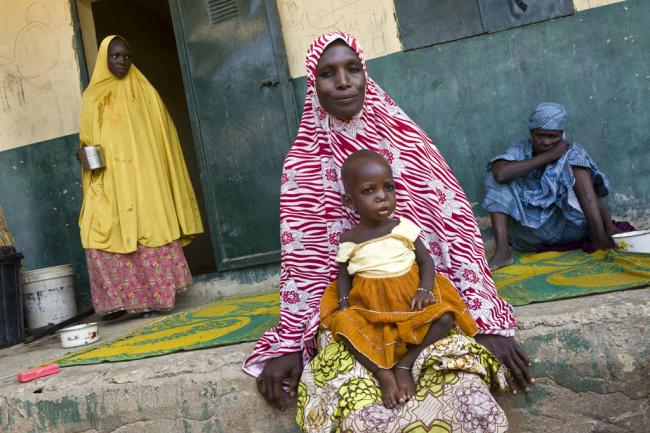
Citing ‘serious protection gaps,’ UN refugee agency assists traumatized populations in northern Nigeria
Reporting the initial findings of staff who had been conducting screenings in the past fortnight on needs and vulnerability in newly accessible areas of crisis-torn Borno state, William Spindler, spokesperson for the Office of the UN High Commissioner for Refugees (UNHCR) told the regular bi-weekly press briefing in Geneva that the agency’s team and partners had been interviewing community leaders and individuals about their situation in several towns in the region, including Monguno, Bama, Damboa, Dikwa, Konduga, Mafa, Magumeri and Shani.
He said they had detected a “high level of vulnerability among people displaced by Boko Haram with nearly every family affected by very worrying protection issues and that some of these people live in fear that the insurgency group could attack them again.”
Indeed, the agency uncovered a similar pattern of vulnerability throughout the assessment: children being sent on to the streets to beg for food and money; many people without a safe to sleep, with some camping in dilapidated schools; mothers whose husbands were kidnapped or who have disappeared have been left to care for as many as 10 children alone in places where they struggle to work or earn money.
More than 60,000 people living in Monguno area were relocated to nine other sites as the military operations continue to take place in the northern part of Borno state in the effort to oust Boko Haram. In Kuya site, there is a great need of regular supplies of aid, as 7,500 people are living in dilapidated school buildings and makeshift shelters, and experience major food shortages, said Spindler.
“The authorities and some aid agencies have distributed food but on an irregular basis and it is vital that distributions be stepped up and made more regular,” stated the spokesperson.
The UN refugee agency stressed that it is currently working on finding a new site for displaced people as well as preparing to deliver relief items such as mattresses, mats, solar lanterns, cooking supplies, mosquito nets, jerry cans, slippers, female hygiene materials, soap, and detergent, to the vulnerable families in Monguno.
Spindler underscored the importance of providing more humanitarian aid to the people of Nigeria. “Even though several agencies are providing life-saving treatment, malnutrition remains rampant in Monguno and other newly accessible areas,” with children suffering from severe malnutrition, he added.
Due to the ongoing insecurity, and presence of land mines in villages and fields, many inhabitants are unlikely to return home. UNHCR is working with the authorities and other aid agencies to help them develop a new site in Monguno to improve the accommodations.
In the past two years, nearly 1.88 million people fled Boko Haram violence, while 2 million people have been forcibly displaced in Nigeria, the UNHCR reported.
According to UNHCR, Nigerian military operations earlier in 2016 in the country’s north-east pushed Boko Haram out of a sweep of some major towns, such as Monguno, 140 kilometres north of the Borno state capital, Maiduguri, and freeing tens of thousands of people from the insurgents’ rule.
Photo: UNHCR/Hélène Caux
Source: www.justearthnews.com
Support Our Journalism
We cannot do without you.. your contribution supports unbiased journalism
IBNS is not driven by any ism- not wokeism, not racism, not skewed secularism, not hyper right-wing or left liberal ideals, nor by any hardline religious beliefs or hyper nationalism. We want to serve you good old objective news, as they are. We do not judge or preach. We let people decide for themselves. We only try to present factual and well-sourced news.







